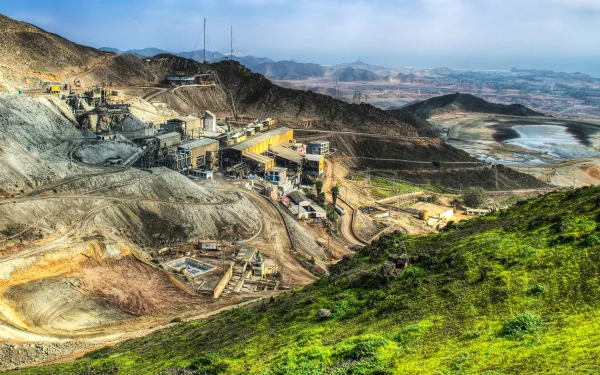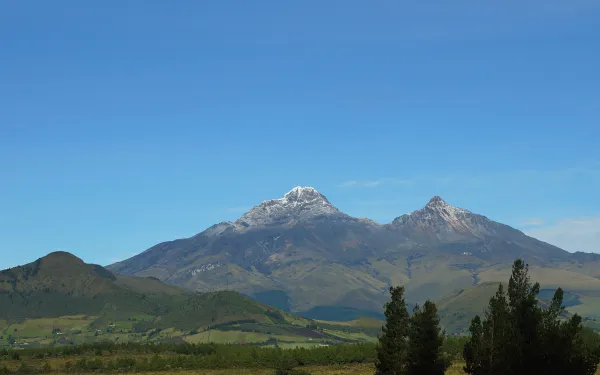
Project
Photo: GCFAdvocating before the Green Climate Fund
The Green Climate Fund is the world's leading multilateral climate finance institution. As such, it has a key role in channelling economic resources from developed to developing nations for projects focused on mitigation and adaptation in the face of the climate crisis.
Created in 2010, within the framework of the United Nations, the fund supports a broad range of projects ranging from renewable energy and low-emissions transportation projects to the relocation of communities affected by rising seas and support to small farmers affected by drought. The assistance it provides is vital so that individuals and communities in Latin America, and other vulnerable regions, can mitigate greenhouse gas emissions and address the increasingly devastating impacts of global warming.
Climate finance provided by the Green Climate Fund is critical to ensure the transformation of current economic and energy systems towards the resilient, low-emission systems that the planet urgently needs. To enable a just transition, it’s critical to follow-up on and monitor its operations, ensuring that the Fund effectively fulfills its role and benefits the people and communities most vulnerable to climate change.
Reports
Read our recent report "Leading participatory monitoring processes through a gender justice lens for Green Climate Fund financed projects" here.
Partners:

Related projects

Collective Statement to the Colombian government on the collapse of Law 1382
The organizations and persons behind the Statement express our concerns to the Colombian government about the implications of the collapse of the Mining Code in effect since May 11, 2012 (Law 1382, 2010) and the consequent return to the previous Mining Code (Law 685 2001), particularly as concerns the serious consequences to the country’s environment (detailed in the document). To prevent these impacts, we urge you to take the following steps: Present in the shortest time possible a draft of the Mining Code that overcomes the deficiencies of mining regulations and brings the legislation into line with the duties of biodiversity and water protection, while previously guaranteeing that ethnic groups have the right to free, prior and informed consultation. Maintain the moratorium on mining permits until a new Mining Code is submitted and approved. Immediately decree a moratorium on environmental licenses in order to avoid the elimination of environmental protection clauses. Statement available in Spanish only.
Read moreReport on the situation in La Oroya (Peru): When investor protection threatens human rights
The International Federation for Human Rights (FIDH) presented a balance of the controversial case of industrial pollution. Huancayo, Peru – The International Federation for Human Rights (FIDH) released a report on the situation in La Oroya, a city in the central Andean region of Peru that is at the center of a controversial case of industrial pollution caused by a poly-metallic smelter in operation since 1922. For decades, the people of La Oroya have been exposed to high levels of air pollution stemming from the complex’s emissions of toxic substances including lead, cadmium, arsenic and sulfur dioxide. In the middle of the 2000s La Oroya was identified as one of the 10 most polluted cities in the world. According to independent studies, 97% of children between the ages of 6 months and 6 years, and 98% of those between 7 and 12 years old still have high levels of lead in their blood. The percentage reaches 100% in La Oroya Antigua, the area closest to the smelter. The effects of lead poisoning are irreversible. Doe Run Peru, a subsidiary of the U.S.-based Doe Run Company, began operating the complex after its privatization in 1997. Both the company and the Peruvian State have failed to comply with their obligations to prevent environmental impact and respect the human rights of the population of La Oroya. In response, the Interamerican Association for Environmental Defense (AIDA) and other organizations requested the Inter-American Commission on Human Rights (IACHR) in 2005 to issue precautionary measures for people whose health was at serious risk from the pollution in the city. On August 31, 2007 the IACHR ordered the State to adopt measures to protect the health, integrity and life of a group of residents of La Oroya. The precautionary measures require Peru to provide a specialized medical diagnostic to the beneficiaries plus specialized and adequate medical treatment to those who, based on the diagnosis, are in danger of irreparable damage to their physical integrity or lives. Also since 2007, a complaint against Peru has been pending before the IACHR for the violation of human rights due to the toxic emissions from the La Oroya Metallurgical Complex. AIDA, APRODEH, Earthjustice and the Center for Human Rights and Environment (CEDHA) are representing the victims and the beneficiaries of the precautionary measures in the case. “AIDA has been working and monitoring the situation in La Oroya for over a decade. Over this time we have seen the extent of the damage to victims’ health in La Oroya due to the pollution that they have been and continue to be exposed to. The State must assume its obligations and fully comply with the IACHR´s precautionary measures that are in effect”, said Maria Jose Veramendi, an AIDA legal advisor. Meanwhile, parents of children with high levels of lead in their blood have tried to obtain compensation for the damages through a collective action in the United States (Missouri), headquarters of the complex’s parent company The Renco Group. In late 2010, Renco initiated international arbitration alleging its rights as a foreign investor as guaranteed by the Free Trade Agreement between Peru and the United States were violated. Renco asked for compensation of $800 million. “The company not only denied the impacts on the citizens and tried to evade responsibility, but in the face of the protests it pursued a campaign of stigmatization and attacks against those who were trying to defend their rights”, said Souhayr Belhassen, president of the FIDH. This case illustrates the conflict between international human rights law and investor protection. It also exposes the legal strategy of the companies allegedly involved in human rights violations that seek to evade responsibility and deny victims their right to reparation. The FIDH report, entitled Metallurgical Complex of La Oroya: When investor protection threatens human rights, includes a series of recommendations directed at the Peruvian authorities and the company involved. AIDA and APRODEH, as organizations representing the victims of La Oroya before the Inter-American Human Rights System, thank the FIDH and believe that the report is an important contribution to visualize the increasingly serious human rights violations suffered by the residents of La Oroya, who still expect the State to recognize its responsibility and bring justice to their claims. At the same time, the Archdiocese of Huancayo, whose role in defending the right to a healthy environment in La Oroya has been crucial, says the report is a major contribution to its work. See de PDF version of the report.
Read more
AIDA and CEMDA joint report on the UPR of Mexico
In accordance with the guidelines of the Human Rights Council, the Mexican Environmental Law Center (CEMDA) and the Interamerican Association for Environmental Defense (AIDA) present comments on the extent of Mexico’s compliance with the recommendations the country accepted as part of the 2009 Universal Periodic Review (UPR). We also present comments on other human rights violations related to environmental issues, which we believe should be taken into consideration during the next Universal Periodic Review set to take place later this year.
Read more